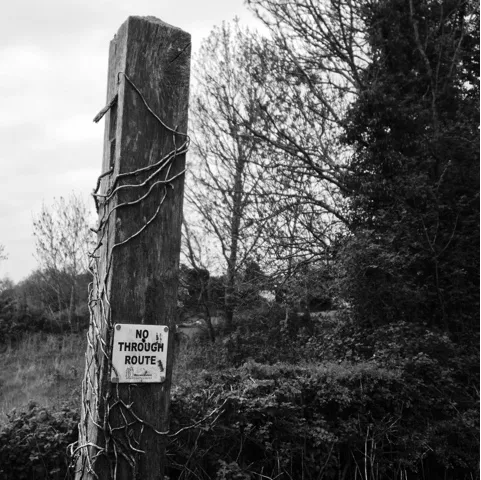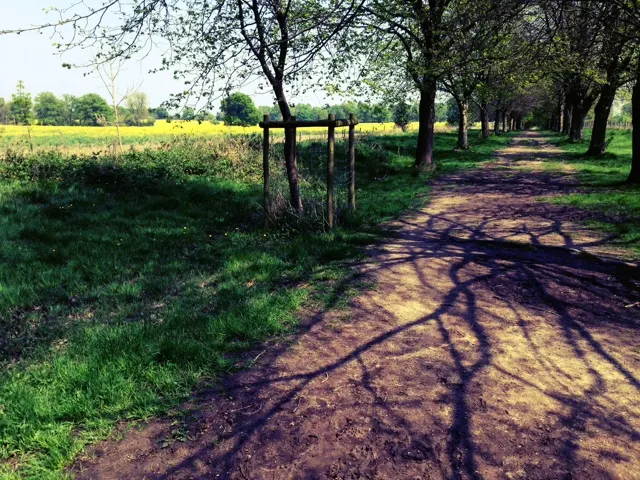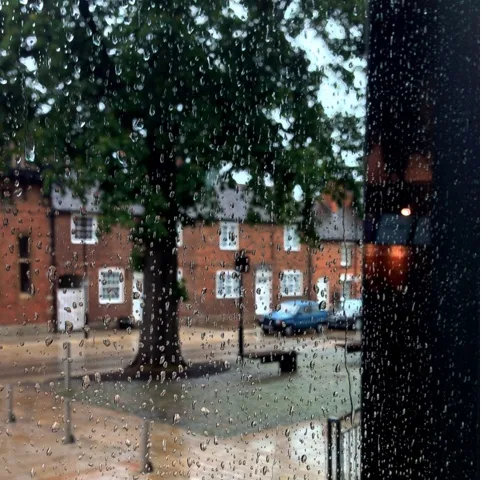The Clouds that gather round the setting sun
Do take a sober colouring from an eye
That hath kept watch o’er man’s mortality;
Another race hath been, and other palms are won.
Thanks to the human heart by which we live,
Thanks to its tenderness, its joys, and fears,
To me the meanest flower that blows can give
Thoughts that do often lie too deep for tears.
– William Wordsworth: Ode; Intimations of Immortality from Recollections of Early Childhood
For a short while, I lived very near to Terry Pratchett (“in the next village along,” as they say): but, never, as far as I know, passed close by him, or espied him in the cloisters or close of the
cathedral we both loved (my photographs of which have illustrated some of this series of posts, as above). His writings, though – and his recent increasingly close relationship with Death: now, of course, brought to its inevitable (although far too early)
conclusion (“AT LAST, SIR TERRY, WE MUST WALK TOGETHER”) – were always not just entertaining, but inspiring and educational, as well, for me. There was a deep, lightly-worn intelligence behind those gleaming glasses that would not be defeated by any cruelty this world could inflict on him. A man truly
aware of his own strengths and weaknesses, I think: who returned Death’s gaze with a steady stare; and, thankfully, we are told, died what we are supposed to call an “easy” death (which is never such: even when it provides
relief to the sufferer, those who are left behind inherit an everlasting pain…).
Recently – and which accounts for the gap in posts (and, believe me, I find it very hard, now,
not to write; now that the authorial genie has escaped cheekily from its bottle of single malt…) – I too have had intimations of my own mortality (although nothing as serious as Sir Terry’s: just enough to remind me that I am human, and certainly no ‘
supercrip’): and can therefore understand more readily why, for many people, such “intimations” provoke a desire for increased meaning in their short lives and the awful world they find themselves in; as well as prompting yearnings for what may lie beyond – why, in a nutshell, religions are born; how
creation myths and
figures in the night sky emerge… – are we really nothing more than “
a flat disc balanced on the backs of four elephants which, in turn, stand on the back of a giant turtle”?
¶
I ended my
last post – over a week ago – writing that “without religion the human race would be considerably worse off and there would be little hope for the future.” This is from a book provocatively entitled
Is Religion Dangerous? by Keith Ward: who concludes, of course, that it isn’t – although, being a priest, you could say that he’s slightly biased. You will have to read the book yourself to see if you agree, though, that he does a pretty good job of being objective (more so, to my mind, than Richard Squawkins has ever been… – although see “bombastic pontifications”, below).
However, although religion is not where I find
my solace (unless you include its buildings and music) – for
me that lurks in good books; Wordworth’s “
setting sun”; the
kindness of strangers; the hesitant transformation of a mild winter into a wind-chilled spring; the serendipitous conversations that pull various parts of your life closer together in a fortunate net of hopes-made-tangible; the hesitant footsteps alongside the Avon as the swans, geese, ducks and coots prepare noisily for the next generation, despite the stinging rain, and the gormless lump of humanity that giggles at their antics standing far too close by (but offering no crumbs nor crusts of sustenance in consolation…) – I understand, and have no problem whatsoever with,
those who do.
Surely, we say,
glancing at the eclipse, life must have more significance than a mere blink of the
universe’s eye (and a blink, at that, which may simply be to remove the discomfiting grit of which we are
made). And ask: Do we have a rôle to play? Is there free will? Does anything we do actually matter? Does our vote make any real difference… – especially in an
election where we keep being told that there won’t be an outright winner…?
(By the way, in their letter, the bishops warn against such despair: urging us all to vote in the General Election – “Unless we exercise the democratic rights that our ancestors struggled for, we will share responsibility for the failures of the political classes. It is the duty of every Christian adult to vote, even though it may have to be a vote for something less than a vision that inspires us.” A perfect summation, I think….)
In response to those questions, I challenge you to read, say, Rupert Brooke’s
Dust and then tell me that any such life (again, too short) with the potential to create such wonderful poetry is unimportant; or listen to Vaughan Williams’, or Nielsen’s, or Beethoven’s fifth symphonies; or stand in the centre of the
Rollright Stones at dawn; and tell me that
any human life isn’t the most valuable creation possible…. As individuals, we
can be great – even if only to our immediate family and friends (which is miracle enough) – but,
together, especially, we have the ability, the power, to change the world we live in both for good and for bad. That is the value, the sacred gift, that we have been given. And we should use it wisely. (If only….) It also means, of course, that we, as individuals, should all be listened to by our “neighbours”….
¶
Whatever is true, whatever is honourable, whatever is just, whatever is pure, whatever is pleasing, whatever is commendable, if there is any excellence and if there is anything worthy of praise, think about these things.
So allow me to digress – slightly – for a moment. (Just for a change.)
A couple of days ago, I was informed that the Planning Inspector had said “no” (huzzah!) to Gladman’s proposed development on Oxhill Road, and refused their subsequent appeal. (And yet, at the time of writing, I see no emails flying
around the village; nor parades marching down Main Street.) Although this, in my Lenten tribulations, obviously raised my spirits a little, and made me realize that the battles the village had fought along the way had proved my supposition, above; I also know that, in fighting those battles, we, as villagers, had sadly demonstrated
both of our “good and bad” sides: with infighting (or, more correctly, insurrection) caused by the overgrown egos and immature self-beliefs characteristic, depressingly, of many political activities.
[126] The advice of St Paul in his letter to the Philippians [above] may help to defend us against the temptations of apathy, cynicism and blame, and instead seek – because we are disciples of Jesus Christ who long for a more humane society – a better politics for a better nation.
It is not my place to solve such an issue (although I can listen to the bishops, and then provide ‘encouragement’ so to do…) – despite a continuing strong urge to bang certain thick, disruptive heads together – although I will say (as I have said many times before) that, as a village, we could (and should) have simply stood on our obvious merits, heads held high, and trusted those already responsible for such fights – i.e. the Parish Council (PC) – and supported, rather than
hindered, them.
We did not need to raise voices, polish swords, dust off cudgels. Instead of caring for the
village (the original motivation, some eighteen or so months ago, for residents’ gatherings and efforts; and the production, back then, of – possibly – the only
bulletproof defence required) – as the members of the PC obviously do – there were those who it would not be unfair to accuse of caring more for the sounds of their own bombastic pontifications. Politicians
manqué, if you will. Some of them may have had good intentions; but, it appears to me, these few have been led astray (although, of course, should have known better…) by those who think a big old house gives them
droit du seigneur over the rest of us mere peasants (especially those whose modern hovels were obviously not built out of ironstone by
medieval vassals).
I do not want ‘my’ village ruled or overseen by such people – as the church
once was and did – I want it governed collegiately: where everyone is given the opportunity to feel, and be, involved (and not just by
belatedly dropping a slip of paper through the door: with no obvious means of return…); and certainly not one where the parish magazine seems to exist just to be
unjustifiably spiteful, nasty and vitriolic about people who the author disagrees with, or who he or she feels to be beneath them. (They must be looking through the wrong end of the telescope.)
Is this truly what we as a parish have become? How does this make us appear to those who walk and cycle through this glorious countryside? Visitors must think we have all just emerged from the back door of
Cold Comfort Farm; or have not moved on since
Akenfield was first published. They must be
astonished that we are not all chewing on stalks of hay.
¶
Despite its many shortcomings, to me, the church – and, indeed,
many religious organizations – have democracy better ‘sorted’: especially in their regular meetings (and not just to worship) at all levels. Take, for instance, my favourite: Quakerism (where atheists and agnostics are
welcome). Nothing is done without the agreement, “at all levels”, of every member. And, although this can mean that drying emulsion looks exciting by comparison, it also means that they are the perfect model of self-government – and one, as a village, we would do well to emulate. Otherwise, we will remain unduly shaped by external forces; rather than – as the (I
increasingly believe unnecessary) Neighbourhood Plan is supposed to do – designing and building our own future: and being united as we do so.
To (try and) keep the religious theme going, the connection intact: I suppose what I would hope for is a reversion to ‘first principles’: similar to the initial, pure rules of the
Cistercian order of monks, rebelling against the increasingly greedy and corrupt Benedictine brotherhood from which they split in the late eleventh century; or the Dominican and Franciscan
friars who followed them, repudiating all personal possessions… – that is (in an extremely roundabout fashion), returning to what the village as a whole thinks is ideal, important, worthy; not just a self-appointed few, ‘in it’ for the power.
Perhaps this is naïve? I certainly seem to have typed that word a lot,
recently. But, having shown, in January, last year, just how united the village can be,
under threat; I believe it can come together, in the same way, for
positive purposes, again –
given the opportunity. I have a dream… – and it is one where every resident of the village helps develop, and shares in, a joint vision of our future; and actively takes part in developing that vision, where and when they can. And is not stifled by either jealousness, ignorance, or arrogance.
¶
[101] But who counts as “we”? It is impossible to ignore the question “who is my neighbour?” It is a question familiar to anyone who has ever picked up a New Testament….
[102] In the gospel, the question “who is my neighbour?” led Jesus to recount the parable of the Good Samaritan. Jesus makes two subtle points, first calling people to follow the example of the Samaritan, the foreigner who went to the aid of the wounded traveller; and secondly, answering the question by suggesting that neighbourliness may mean receiving care from a member of a despised social group. Neighbourliness, then, is not just about what we do for others. It is also about what we are willing to receive from those we fear, ignore or despise.
Do you know your neighbour? (And I don’t just mean your literal neighbour – as the bishops also intimate.) How well? Do you know how they feel about the village’s future; the importance and relevance of the Neighbourhood Plan to them; or are they simply too busy getting on with the increasing complexity and austerity that most of us (who don’t live in “a big old house”, for whatever reason) face in our daily lives? Do they love living here; have they lived here long; and/or do they begrudge the long daily commute to their place of employment? Do they worry about their children’s ability to stay in the village; the affordability of local housing; that we are so environmentally unfriendly in our high consumption of fossil fuels to heat our homes, and feed our cars, that their grandchildren’s lives will be blighted by our inaction; the fact that it is nigh impossible to find a bus that can get you to and from work, if you can’t afford a car in the first place; or get you to the Job Centre on time?
[123] This letter is about building a vision of a better kind of world, a better society and better politics. Underlying those ideas is the concept of virtue – what it means to be a good person, a good politician, a good neighbour or a good community. Virtues are nourished, not by atomised individualism, but in strong communities which relate honestly and respectfully to other groups and communities which make up this nation.
[124] Strong communities are schools of virtue – they are the places where we learn how to be good, how to live well and how to make relationships flourish. They build on the traditions through which each generation learns its national, local and family identity. Virtues are ways of living that can be learned, but which too many trends in recent decades have eroded.
Well, the
bishops’ letter discusses most of these things (as you have seen) – and in a way that doesn’t try to score points; that does its best to be inclusive and thoughtful; that shows that it cares about each and every one of us – even if we don’t share their faith. Having read through most of the major political parties’ websites, as well, the Church of England stands out as unique in having a truly moral backbone; and, despite my atheism, I would rather vote for them than any political organization. Why? Because they so obviously
care – and, as I said above, that “care” appeals to me because it is for all of their ‘flock’, equally, rather than simply one “
hardworking” part of it; and it is not “for the sounds of their own bombastic pontifications”. They therefore lead by example: showing just what is absent from our tawdry, hostile, debasing politics (both nationally and locally); and why those in power must (or should) feel utterly embarrassed and belittled by the Church’s much-needed intervention. (Oh, how “those in power” must sympathize with
Henry VIII. “Bring me a glass of water, Cromwell – I’m going to dissolve the monasteries.”)
It is just a shame, that like most front-page news, the letter has quickly vanished from the media: to be overtaken by more important matters, such as
Ed’s two kitchens.
¶
But you don’t have to be religious to think like this. Surely, I am proof of that…? (By the way, the obverse also applies: sadly, not all religious people truly care….)
I therefore ask three things of you. Firstly, whatever your religion, sit down, over the long Easter weekend, with a cup of tea or coffee, and read
what the bishops have to say, please. Secondly, think what part you play in the village – could that rôle be widened and made more effective: either by expanding what you do; or by getting others, with divergent views and backgrounds, to help? Then, whatever your conclusions, put those thoughts on endless ‘repeat’; and never assume that what you are doing is either right or enough. Finally, next time you see your neighbour, say “Hello”, and with a smile on your face…! Thank you.
Being right is not the same as being righteous…. (Righteousness is usually a quality seen in people who are a pain in the arse.)




























